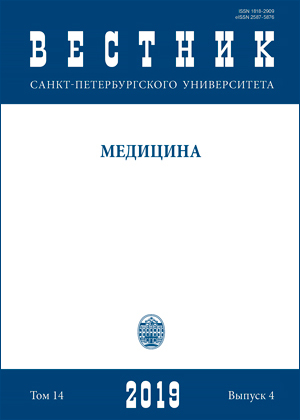Immune system as a part of regulatory and integrating apparatus of the body: A biomedical philosopheme*
DOI:
https://doi.org/10.21638/spbu11.2019.403Аннотация
This conceptual article addresses different underrecognized aspects of the immune system physiological activities. These ones include: the role of the immune system and physiologic autoimmunity in maintaining normal body’s own cell populations; its involvement in placentation and mother-to-fetus interactions; its embedding into immune-neuroendocrine communicative and integrating apparatus designated first of all for support of unique multicellularity of the organism and for regulation of its somatic cells’ growth and life. Besides cytokines, a powerful instrument of somatic regulation is agonistic (functional) autoantibodies, able to act on their receptors in hormone-like manner. The regulatory potential of antiidiotypic immunity is underappreciated. There is evidence, that anti-idiotypic antibodies can create internal immunological images and copy the ligand properties of different bioregulators and even drugs. What makes the regulatory interactions even more complex is the fact that antibodies are capable of penetrating living cell membrane, permeating the nucleus and produce a wide spectrum of regulatory effects on transcription, translation and post-transcription modifications.
Ключевые слова:
agonistic autoantibodies, functional autoantibodies, idiotype-antiidiotypic network, immunoglobulin-mediated regulation, antinuclear antibodies, physiologic autoimmunity, anti-receptor antibodies, gene expression, immune homunculus (immunculus)
Скачивания
Библиографические ссылки
References
Загрузки
Опубликован
Как цитировать
Выпуск
Раздел
Лицензия
Статьи журнала «Вестник Санкт-Петербургского университета. Медицина» находятся в открытом доступе и распространяются в соответствии с условиями Лицензионного Договора с Санкт-Петербургским государственным университетом, который бесплатно предоставляет авторам неограниченное распространение и самостоятельное архивирование.




